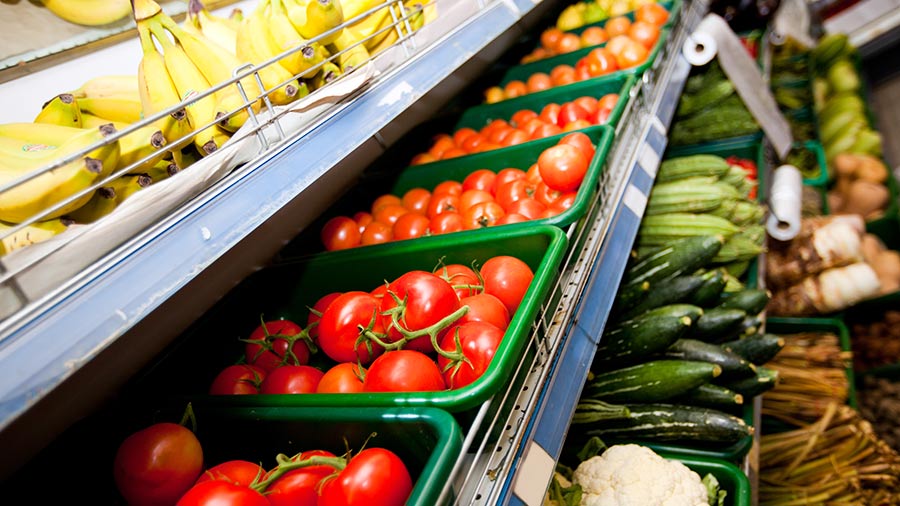Organic market contracts by 7% in volume as inflation bites
 © moodboard/Adobe Stock
© moodboard/Adobe Stock Higher retail prices in response to significant cost inflation have led to a sharp decline in the volume of organic food sold in supermarkets, with data from NielsenIQ showing a 6.7% fall in 2023.
But the higher prices still meant that, in value terms, the organic market grew by 2% to total £3.2bn, according to the latest annual report from the Soil Association.
Indeed, the value of the UK organic market has almost doubled since 2011, yet organic farming still only accounts for about 3% of total UK farmland, which leaves the market with a heavy reliance on imported organic food products.
See also: Scientists challenge ‘green’ claims of organic farming lobby
According to the Soil Association report, organic dairy produce accounted for the largest proportion of the market, making up 28% of the value, followed by fresh produce (20%), tinned food (15%), baby food (11%), and meat, fish, and poultry (9%).
In terms of sales, supermarkets made up the lion’s share, accounting for £2bn of the £3.2bn market, while independent retail accounted for a further £475m, and the food-service sector and home delivery made up the remainder.
Soil Association certification commercial director Alex Cullen said: “Organic has delivered a positive and resilient performance, despite challenging financial and political conditions and without the support that organic food and farming receives in Europe and elsewhere in the world.
“The market and macro trends are pointing to an upward trajectory, but there are still many challenges and barriers to the level of growth that UK organic should be delivering for farmers – with price the biggest barrier.”
Land area grows in Europe
The proportion of land farmed organically in the UK remains lower than on the Continent, at 3% compared with 10.4% in the EU.
Figures for 2022 also show that, while the UK organic area has been fairly static, in Europe it grew by 5.1% to 16.9m hectares.
The EU Commission has a target of 25% of agricultural land being farmed organically by 2030, but some countries such as Germany and Austria have set higher internal targets of 30%.
Government support for organic producers
Commitments have been made by the devolved governments of the UK to support the organic sector through a range of policies.
Defra outlined annual payments available for organic farmers in England in June last year through the Sustainable Farming Incentive. Full in formation can be found on the Defra website.
Farmers in Scotland can receive payments for converting to organic practices as part of the Scottish government’s aim to double its organic production by 2026.
In Wales, delays to the Organic Support Payment scheme have made the future of nature-friendly farming unclear, according to the Soil Association.
Ms Cullen said: “We can learn valuable lessons from Europe, where there is greater support and commitment from governments and retailers for farmers, and from some exciting innovations taking place right here across the UK – to make organic more available and affordable.”
Organic Farmers and Growers chief executive Roger Kerr added: “Globally, there is much greater impetus within the organic sector, and we must capitalise on that momentum.
“Our neighbouring EU member states are committed to funding organic conversion and maintenance support for 10% of the useable agriculture area as organic by 2027 in their national CAP Strategic Plans.”
Organic grower’s view
Norfolk-based grower RBOrganic specialises in growing organic carrots and potatoes as part of the Burgess Farm Group, which are then sold at retail and wholesale.
Burgess Farms managing director Joe Rolfe said: “The organic market in 2022 was tough due to inflation and the cost-of-living crisis, but in 2023 organic sales returned to a more positive trajectory and are heading in the right direction.”
Mr Rolfe added: “Organic growers need to be rewarded with fair prices and supported by effective environmental schemes that balance environmental outcomes with food production. When you look at places like Denmark and Germany, growers are supported in a more proactive manner by government.”
